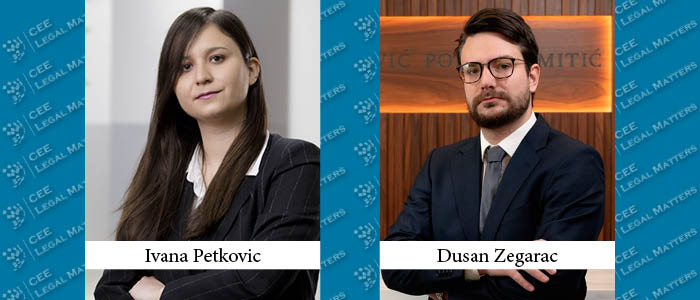It is well established in today's world that the resolution of civil disputes is a crucial aspect of any legal system both by ensuring justice effectively and enabling continual business relationships to thrive unhindered by excessively long-lasting court proceedings.
Being that the efficiency of legal proceedings is of utmost importance, clients seek timely resolution of their disputes. Thus, one of the main concerns before initiating any civil proceeding is how long is it going to last.
Civil disputes can be resolved in two alternative forums, before the state court and before arbitration. While civil procedure follows the conventional path of litigation through the courts, arbitration offers an alternative method for dispute resolution through private tribunals. The condition for the dispute to be resolved by arbitration is for the dispute to be arbitrable (capable of being settled by arbitration) and that the parties to the dispute concluded an arbitration agreement.
Although both types aim to provide fair and efficient solutions for dispute resolution, the duration of proceedings can significantly differ between the two. In this article, we will delve into the duration of these types of proceedings In the Republic of Serbia, to better understand the advantages and drawbacks of each approach.
Civil Procedure
In the case a resolution of a certain dispute cannot be resolved amicably, the main and most widely used type of dispute resolution in civil matters in the Republic of Serbia is the litigation through the Serbian courts. In the Republic of Serbia, different laws govern and regulate the length of civil proceedings, as well as legal remedies the parties may utilize in the case their right to a trial within a reasonable time should be violated.
The civil procedure in Serbia is governed by the Law on Civil Procedure (in Serbian: “Zakon o parnicnom postupku”), which outlines the rules and principles for resolving disputes through the court system.
When it comes to the duration of civil proceedings, the Article 10 of the Law on Civil Procedure prescribes that every party has the right to have the court decide on its requests and proposals within a reasonable time. The cited article further stipulates that the court is obliged to conduct the procedure without delay, in accordance with the previously determined time frame for undertaking litigation actions (hereinafter: time frame) and with as few costs as possible.
Furthermore, Article 326 of the Law on Civil Procedure prescribes that the court is obliged to ensure that the subject of the dispute is comprehensively discussed, that the procedure is not prolonged as well as that the discussion is completed, if possible, at one hearing, i.e., within the time frame.
Thus, it can be seen that the main principles ensuring the efficiency of proceedings which the Law on Civil Procedure envisages are deciding on a judgment within a reasonable time and the time frame determined in the proceeding.
The main method envisaged in the Law on Civil Procedure for ensuring an efficient trial is setting the time frame of the proceedings. Article 308 para. 1 of the Law on Civil Procedure prescribes that the parties are obliged to propose a time frame for conducting the proceedings not later than at the first hearing. The deadlines, hearings, and all further actions in the proceedings are then determined according to the time frame. Furthermore, after the determining the time frame of the proceedings, the court is obliged to uphold the determined the time frame, prevent any attempt of unfounded postponement of the hearing as well as to sanction any violation or abuse of procedural rights and violation of procedural discipline. Finally, article 108 of the Law on Civil Procedure prescribes that when postponing the hearing, the court shall always determine a new time frame, which cannot be longer than one third of the originally determined time frame.
Nevertheless, this method of ensuring efficient proceedings has proven to be inefficient. The hearings are often postponed for a variety of reasons, whereas the next hearings are usually scheduled in not less than several months.
According to the data of the regional survey on the judicial system of the World Bank, the average length of the first-instance court proceedings in civil matters in the Republic of Serbia is 15 months. However, many of the civil proceedings do not end after the first instance judgement but may last several years by the time the appellate and second-instance proceedings are completed.
According to the data of the Supreme court of Serbia, over 50% of unsolved cases have entered into their fourth year of duration, while in 25% of the cases, between 5 and 10 years have passed from the date of submission of the initial act.
Further, the total number of all new cases received before all courts in Serbia in 2022 (including the criminal, enforcement, non-litigation, and other proceedings) amounts to a copious 1,808,813 cases, while the total number of solved cases before all court combined amounts to 2,132,305. Additionally, in the last decade, a tendency of an increase in litigation cases can be seen, amounting to a total 270,765 new cases before all courts in 2019.
It thus comes as no surprise that the civil proceedings may be lengthy, resulting from the sheer number of cases before the courts on the one hand, and from the very statutory regulations governing the civil procedure on the other. In light of the above, the civil proceedings in Serbia can extend to several years in first instance only, especially in complex cases.
Arbitration
While being an alternative to litigation through the civil courts, the arbitration offers a different approach to dispute resolution in the Republic of Serbia.
One of the most significant advantages of arbitration is the flexibility it offers in tailoring the dispute resolution process to the parties' needs. The parties have control over selecting arbitrators, determining the applicable rules, and setting deadlines for the proceedings. This autonomy can significantly impact the duration of the process, as the parties can agree on a more expedited timeline. The arbitral proceedings are hence governed by different set of rules that the civil proceedings, which in turn prompt a difference in their respective length.
In Serbia, the arbitration is governed by the Arbitration Act (in Serbian: Zakon o arbitraži), while the two of the main bodies conducting the domestic arbitration are the Permanent Arbitration at the Chamber of Commerce and Industry of Serbia and the Belgrade Arbitration Center. While being generally similar, each of these bodies have their respective rules on conducting arbitration, and with that, the length of the arbitral proceedings.
Both the Rules of the Permanent Arbitration at the Chamber of Commerce and Industry of Serbia (hereinafter: Rules of PA), and the Rules of the Belgrade Arbitration Center (hereinafter: BAC Rules) are fairly similar when it comes to the duration of the proceedings. Thus, it is prescribed that, as a rule, arbitral proceedings shall be completed within six months from the date of constitution of the arbitral tribunal or the appointment of the sole arbitrator.
The Rules of PA further envisage that, as an exception, the arbitral tribunal or the sole arbitrator may decide, upon obtaining the consent of the President, that the arbitral proceedings shall be extended after the expiration of the above-stated time limit if it is necessary for the purpose of obtaining evidence, if the parties make such a request, or for other justified reasons.
The BAC Rules includes a similar provision, prescribing that as an exception, the arbitral tribunal may extend the time limit at the request of the parties or on its own initiative, but always with prior consent of the Board. The time limit may also be extended by the Board on its own initiative if it deems that there are justified reasons for such extension.
While both rules prescribe that proceedings are generally to be completed within six months from the date of constitution of the arbitral tribunal, in practice, it is more often than not that this deadline is extended by the request of the parties.
Another aspect of arbitration heavily influencing the length of the proceedings and differentiating them from the civil procedure are the rules governing the conduct of the proceedings and procedural timetable.
Thus, Article 30 of the Rules of PA envisages that upon transmission of the files of the case from the Secretariat of the Arbitration to the arbitral tribunal or the sole arbitrator, the members of the arbitral tribunal or the sole arbitrator may for reasons of efficiency consult the parties to the dispute and establish the procedural timetable of the arbitral proceedings. The procedural timetable shall contain time limits for potential additional submissions of the parties, the date on which the hearing for oral argument shall take place, as well as the indication of the time period within which or the date on which the rendering of the final award is planned. In addition to the aforementioned elements, the procedural timetable may contain other necessary elements.
Similarly, Article 29 (4) of the BAC Rules prescribes that the arbitral tribunal shall endeavor to lay down a procedural timetable as soon as possible in the proceedings, after inviting the parties to present their views. The arbitral tribunal may, at any time, after inviting the parties to present their views, extend or shorten the time limits agreed upon by the parties, prescribed by the Rules, or established in the arbitral tribunal’s procedural order.
Consequently, the Rules of PA and BAC Rules provide the parties with the option of regulating the rules and dates of their respective submissions and hearings themselves, while the decision of the tribunal heavily relies on the parties’ view.
It can be said that the efficiency of arbitral proceedings in many ways arises from this approach. By pre-determining the dates of the actions in the proceedings, the set deadlines ensure a swift resolution of disputes in arbitral proceedings.
In addition to the regular procedural rules in arbitration, the Rules of PA obtain a set of rules governing special rules on expedited arbitration procedure. While being in discretion of the parties, these represent a special set of rules which regulate the arbitral proceedings in the case when the amount in dispute does not exceed EUR 50.000,00, or when the parties have agreed that the proceedings shall be governed by these special rules.
In the expedited arbitration procedure, the proceedings are conducted by the sole arbitrator, which is to be appointed by the parties within 15 days from the day on which they were instructed by the Secretariat of Arbitration. Further, the rules of expedited arbitration envisage shorter deadlines for submitting the submission in the proceedings, whereas as a rule, only one hearing is to be held.
In light of the above, the expedited arbitration procedure provides the parties with an option of even quicker and more effective dispute resolution, while usually being restricted to low-value disputes.
Finally, the main advantage of arbitration in comparison to civil procedure is the legal finality and enforceability of the arbitral award. Aside from the proceedings of setting aside an arbitral award, applicable only in special circumstances, the arbitration does not offer a possibility of an appeal, limiting the maximal length of the proceedings to one-instance only.
This in itself might be the main point differentiating the length of arbitral and civil proceedings.
Conclusion
The length of proceedings in arbitration and civil procedure in Serbia differs significantly. Arbitration offers a more efficient and tailored approach to dispute resolution, allowing parties to resolve their issues promptly and cost-effectively. On the other hand, civil procedure, while providing a formal and regulated forum, can lead to prolonged disputes due to its strict procedural requirements. Choosing the most appropriate dispute resolution mechanism can thus significantly impact the speed and efficiency of resolving conflicts.
Both arbitration and civil procedure have their merits and are suited to different circumstances. Parties should consequently carefully consider their specific needs and preferences when choosing the most appropriate method for dispute resolution in the Republic of Serbia. Ultimately, the goal is to achieve a fair and timely resolution that upholds the principles of law and aligns with the interests of all parties involved.
By Ivana Petkovic, Senior Associate, and Dusan Zegarac, Associate, JPM & Partners
















